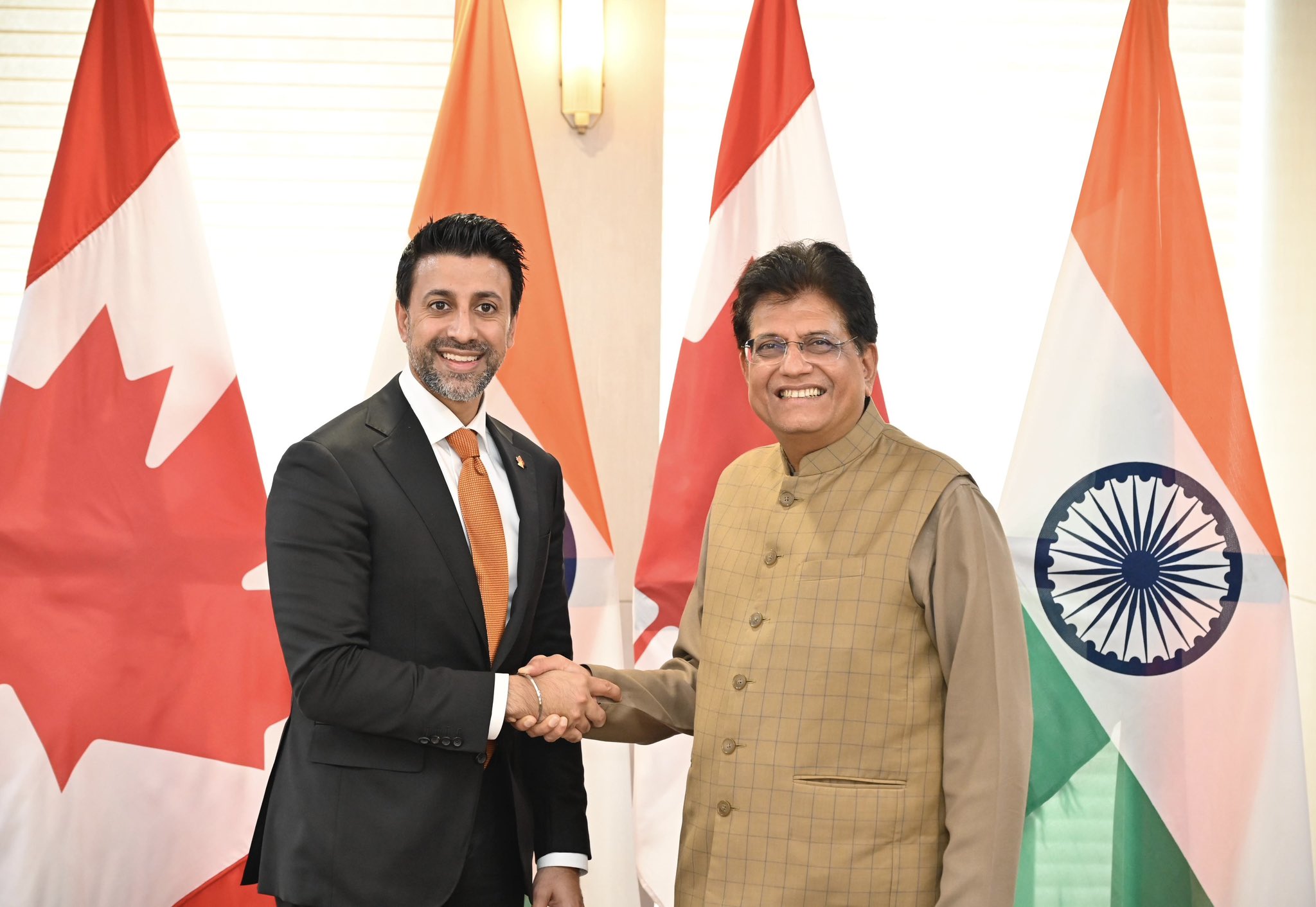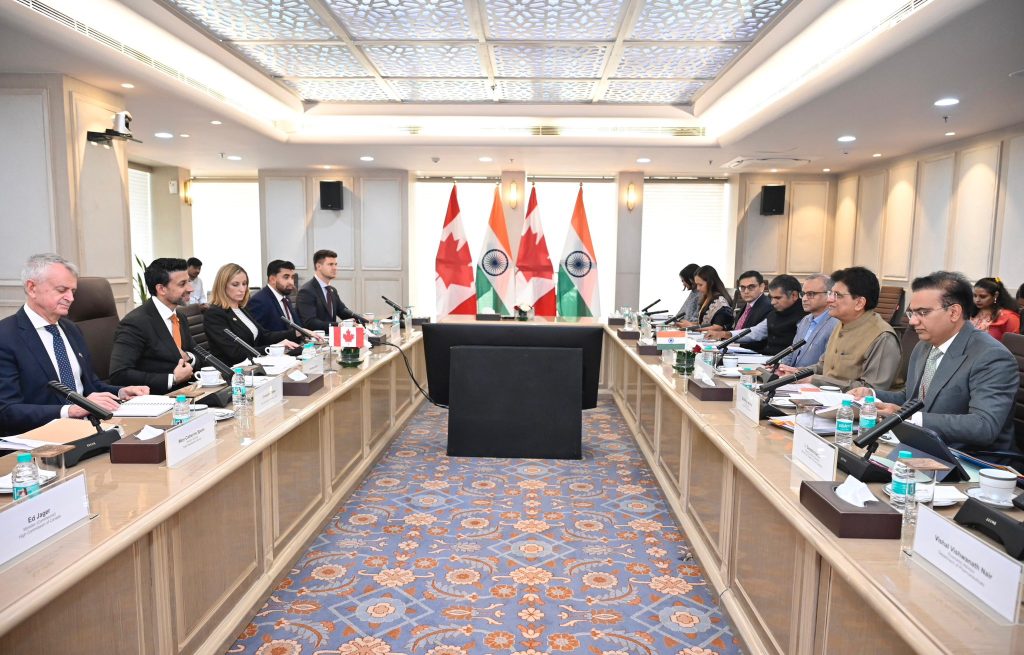India and Canada on Thursday concluded the 7th Ministerial Dialogue on Trade and Investment (MDTI) in New Delhi, aimed at advancing bilateral economic cooperation and reviewing progress across key sectors. The meeting was co-chaired by India’s Commerce and Industry Minister Piyush Goyal and Canada’s Minister of Export Promotion, International Trade and Economic Development, Maninder Sidhu, who was on an official visit to India from November 11 to 14.
The dialogue followed directions from both prime ministers during their meeting at the G7 Summit in Kananaskis earlier this year, as well as the joint statement issued by the foreign ministers in October outlining trade as a central pillar of the bilateral partnership.
Both ministers reaffirmed the continuity of the India-Canada economic relationship and highlighted the strong growth in bilateral trade. Total trade in goods and services reached US$23.66 billion in 2024, while merchandise trade stood at nearly US$8.98 billion, marking a 10% year-on-year increase. They also welcomed steady two-way investment flows, including continued Canadian institutional investments in India and the expanding presence of Indian companies in Canada.
The two sides reiterated their commitment to maintaining an open and predictable investment environment and discussed the scope for deeper engagement in priority sectors. They identified significant complementarities in areas such as critical minerals, clean energy, and aerospace.
In this context, the ministers agreed to promote long-term supply chain partnerships in critical minerals and clean energy—sectors considered essential for energy transition and industrial expansion. They also agreed to expand cooperation in aerospace and dual-use capabilities, acknowledging Canada’s strong footprint in India and the rapid growth of India’s aviation sector.
The ministers exchanged views on global economic developments, particularly recent supply chain disruptions. They underscored the importance of building diversified and reliable supply chains in critical sectors, including agriculture, to support long-term economic stability.
Both sides expressed satisfaction with the progress made and emphasized the need to maintain momentum in bilateral engagement, including through people-to-people ties. They also agreed to hold further interactions with the business community in early 2026.
The meeting concluded with both ministers acknowledging the constructive nature of the discussions and affirming continued communication as they plan next steps in strengthening the economic partnership.















